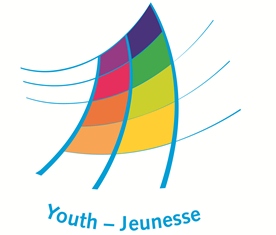TRAINING TRAINERS FOR YOUTH IN AZERBAIJAN (TRAYAZE)

The Council of Europe Youth Department and the Ministry of Youth and Sport of the Republic of Azerbaijan co-organised a Long-term training course for trainers from Azerbaijan involved in educational activities with young people based on non-formal education (TRAYAZE). This corresponds to the priorities of the Council of Europe Action Plan for Azerbaijan. With this activity it is expected to expand the number of trainers competent to support and develop quality non-formal learning activities, including human rights education approaches, with young people in Azerbaijan.
Improving the quality and promoting the recognition of youth work and non-formal education has been on the agenda of the Council of Europe Youth Sector for many years. The importance and value of youth work and non-formal education is reflected on Recommendation CM/Rec(2003)8 of the Committee of Ministers on the promotion and recognition of non-formal education/learning of young people. The role of non-formal education as a methodology and approach in enabling quality youth activities is also recognised within the Council of Europe Youth Sector strategy 2030, adopted by the Committee of Ministers in 2020. Non-formal education is an important way for young people to learn and practice skills for self-development and to fully participate in all aspects of society.
TRAYAZE responds to the needs identified by both governmental and non-governmental partners of the Council of Europe in Azerbaijan who are committed to promote both the social recognition and the quality of non-formal education with young people in Azerbaijan.
TRAYAZE should bring together a total of up to 30 participants with the profile, experience and motivation to act as trainers and multipliers and apply the Council of Europe Youth Department quality standards in education and training activities in Azerbaijan.
The activity is organised within the Council of Europe Action Plan for Azerbaijan in the framework of the project "Supporting the development of the participative and rights-based youth policies and values-based youth work in Azerbaijan”.
Aim
The aim of the training course is to extend the access to, and attractiveness of, youth work and non-formal education/learning, to improve the quality of educational activities in the field of youth work, and to expand the number of trainers in Azerbaijan with the competence to develop and implement non-formal educational activities by using the quality standards of the Council of Europe.
Objectives
- To develop the capacity of a group of 30 trainers and youth workers from Azerbaijan and enabling them to apply key approaches, concepts and practices in non-formal education projects and activities for and with young people;
- To explore the notion of quality in non-formal education and training activities and how to apply it in Azerbaijan;
- To strengthen participants’ competences in using non-formal education with young people including the understanding of the main principles, the skills needed to use non-formal education approaches and the attitudes underlining these educational approaches;
- To support participants in increasing their understanding of the full project cycle in organising a non-formal education activity;
- To increase competences of youth workers and trainers with mentoring support and educational tools;
- To enlarge the existing group of experienced trainers able to develop and implement quality training activities in Azerbaijan, and to support the further development of the existing trainers’ networks;
Competences to be addressed
The training course contributes for development of participants competences necessary to implement quality non-formal education activities and supports youth work and youth policy development in Azerbaijan. Key concepts and practical applications of human rights education, citizenship and civic education, non-formal learning, youth work and youth policy are presented to the participants.
The course content and methodology are designed so that the participants will be able to develop (or begin developing) core competencies for trainers in non-formal education with young people and apply the learning acquired from this experience to other activities in which they are expected to perform as trainers or facilitators of learning processes. The competences addressed correspond largely to those required to be admitted in the Trainers Pool of the Council of Europe Youth Department: http://rm.coe.int/doc/09000016806fcf1d
Methodology
The training course contributes to the knowledge of trainers and youth workers on approaches and standards of the Council of Europe in the field of youth work. The content and methodology of the LTTC is based on the principles of non-formal education: experiential learning and, especially in view of the specific objectives of the course, participant-based and participant-led.
The course gives participants-trainers the opportunities to experience and reflect upon activities and concepts central to human rights education based on experiential learning approaches from the perspective of trainers-learners. Central to the course concept is the project/practice on non-formal learning that each participant will be required to implement during the project phase. The programme includes elements of sharing experiences and best practices of organising non-formal activities in the context of the Youth Department of the Council of Europe and outside to support peer-learning between participants.
Evaluation and consolidation seminar - Strengthening democratic youth work and non-formal education in Azerbaijan
20-27 November 2023, European Youth Centre Strasbourg





